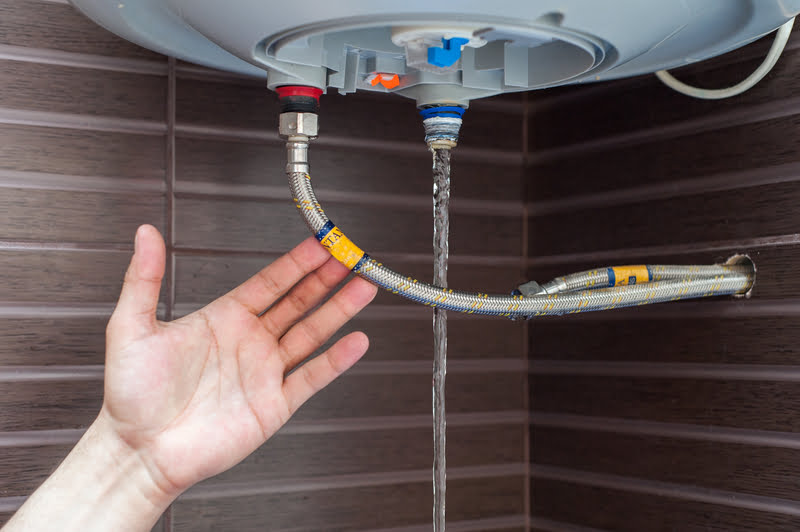Tackling the Frequently Encountered Water Heater Emergencies
Tackling the Frequently Encountered Water Heater Emergencies
Blog Article
Are you searching for facts and techniques concerning Is Your Water Heater Leaking??

A hot water heater is one of one of the most crucial fundamental home appliances that can be discovered in a home. With hot water heater, you do not require to go through the stress of home heating water manually whenever there is a need to wash, do the laundry, or the meals. However, there is constantly an opportunity that your hot water heater would break down just like many mechanical devices.
It is very important to note any little breakdown and also tackle it rapidly prior to points leave hand. Many times, your hot water heater begins to malfunction when there is an accumulation of debris as a result of constant use. As a safety measure, regular flushing of your water heater is advised to avoid debris buildup as well as protect against functional failing.
Usual water heater emergency situations and exactly how to deal with them
Too little warm water
Dealing with a not enough supply of warm water can be aggravating. It may be that the water heater can't support the warm water demand for your apartment or condo. To manage this issue, you could attempt to adjust your heating system's temperature dial as well as wait for a few mins. You can ask for the aid of a specialist plumber if the issue lingers. Alternatively, you can upgrade your hot water heater to one with a larger ability.
Rising and fall water temperature.
Your water heater can begin generating water of different temperature levels usually ice chilly or scalding hot. There could be a demand to change either the thermostat or the home heating unit of your water heating system.
Dripping hot water heater container.
In this situation, you ought to turn off your water heating system, enable it to cool down, and very carefully look for the resource of the trouble. At times, all you need to do is to tighten a couple of screws or pipe links in instances of small leaks. If this doesn't work as well as the leak continues, you could need to utilize the services of a specialist for an appropriate substitute.
Tarnished or smelly water
When this takes place, you need to recognize if the problem is from the water or the storage tank source. If there is no amusing odor when you run chilly water, then you are specific that it is your water heating system that is defective. The odiferous water can be created by rust or the accumulation of germs or sediments in the water heating system container.
Conclusion
Some property owners overlook little caution as well as minor faults in their hot water heater system. This just brings about more damage as well as a possible complete malfunction of your home appliance. You must take care of your hot water heater mistakes as quickly as they come up to stay clear of even more expenses as well as unneeded emergency troubles.
With water heating systems, you don't require to go with the anxiety of heating water manually every time there is a need to take a bath, do the laundry, or the recipes. It may be that the water heating unit can't sustain the warm water demand for your home. Your water heating system can begin generating water of various temperatures usually ice cold or scalding warm. If there is no amusing odor when you run cold water, after that you are certain that it is your water heating unit that is faulty. The smelly water can be created by rust or the build-up of microorganisms or sediments in the water heating unit container.
Common Water Heater Issues and What You Should Do
What Type of Water Heater Do You Have?
Before we begin it’s first important that you identify the type of water heater you have on your property. There are two main types of water heaters out there: conventional and high efficiency.
Both of these types of products typically use either gas or electricity to heat power. There are also solar water heaters that use a thermal collector on the roof or yard to heat the water.
While these models are not as common, they can cut heating costs in half. In this article, we will focus on conventional and high efficiency.
How Do My Electric and Gas Water Heater Work?
Though they look similar, electric and gas water heaters work very differently. It’s important to know their basic function because often problems can be specific to the heating source.
In the electric model, a thermostat on the side of the machine detects the temperature of the water in the tank. When the temperature needs to rise electricity flows to a heating element suspended in the water.
Gas models also use a thermostat device — typically with a mercury sensor at the tip and an additional sensor called a thermocouple. The thermocouple detects whether the pilot light is on and controls the flow of gas.
When the thermostat drops below the appropriate level gas is released which becomes ignited by the pilot light. The flame heats the bottom of the water tank which causes hot water to rise and cold water to drop.
This natural circulation continues until the water reaches the desired temperature. Then, the thermostat triggers the gas control valve to shut off the flow of gas.
What Are the Most Common Issues and How Do You Fix Them?
https://happyhiller.com/blog/common-water-heater-issues-and-what-you-should-do/

I hope you enjoyed our post about Warning Signs You Need Water Heater Repairs. Thank you for taking the time to browse our content. Do you know another person who is serious about the subject? Why not share it. We take joy in reading our article about Is Your Water Heater Leaking?.
Top-notch fix? Dial! Report this page